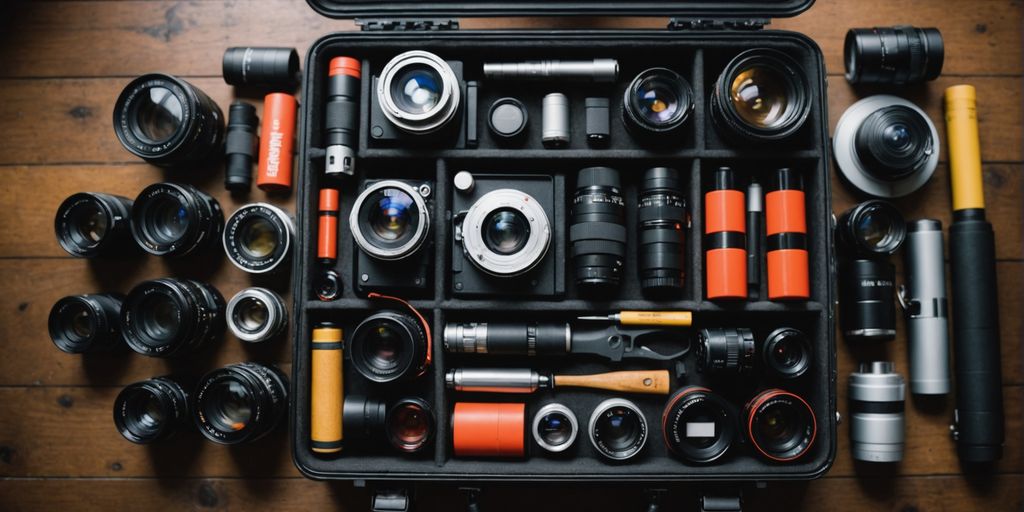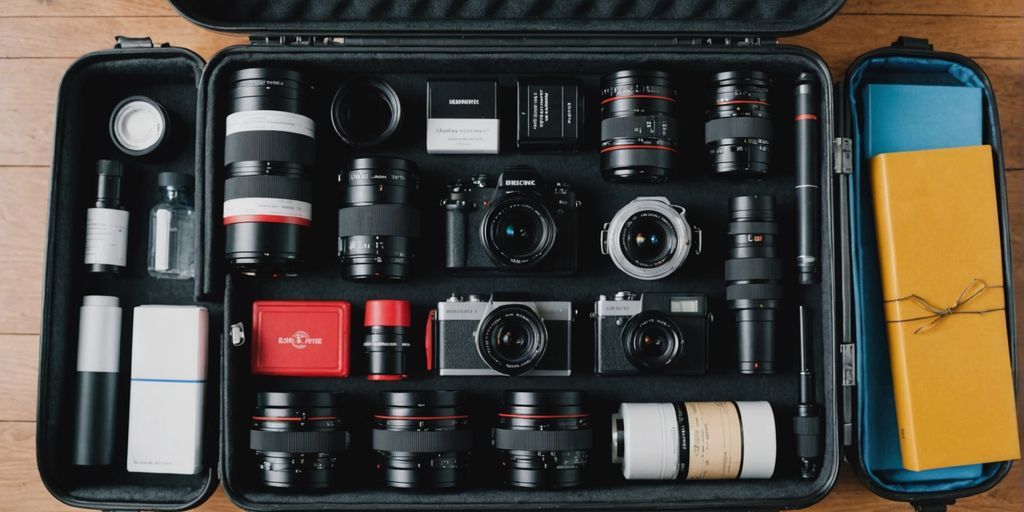Traveling is an exciting way to experience new cultures and cuisines. However, eating unfamiliar foods can sometimes lead to food poisoning, which can ruin your trip. By being mindful of food safety practices, you can enjoy your travels without the worry of getting sick. Here are some key takeaways to help you stay healthy while exploring the world.
Key Takeaways
- Always wash your hands before eating to prevent the spread of germs.
- Opt for cooked foods instead of raw or unpeeled produce to avoid foodborne illnesses.
- Drink bottled water and avoid ice in drinks to ensure the water is safe.
- Choose reputable restaurants and avoid street food to lower the risk of food contamination.
- Be aware of local food safety practices and follow travel advisories for a safer dining experience.
Understanding Foodborne Illnesses
Foodborne illnesses, often called food poisoning, are caused by eating or drinking something contaminated with germs like bacteria, viruses, or parasites. Each year, one in six Americans gets sick from these pathogens. Symptoms can range from mild to severe and may include stomach cramps, diarrhea, vomiting, fever, and body aches. The most common sources of contamination are raw or undercooked meats, raw milk, raw fruits and vegetables, shellfish, and improperly stored foods.
Common Symptoms of Food Poisoning
Symptoms of food poisoning can appear within hours or even days after consuming contaminated food. They often include:
- Stomach cramps
- Diarrhea
- Vomiting
- Fever
- Body aches
Types of Foodborne Pathogens
There are 31 major known pathogens that cause foodborne illnesses. Some of the most common ones include:
- Norovirus
- Salmonella
- E. coli
- Clostridium perfringens
- Campylobacter
How Food Poisoning Occurs
Food poisoning happens when food or drink is contaminated with harmful germs. This can occur at any point during food production, processing, or preparation. Common causes include:
- Consuming raw or undercooked meats
- Drinking raw milk
- Eating raw fruits and vegetables
- Consuming shellfish
- Eating food stored at unsafe temperatures
Researching Local Food Safety
When traveling, it’s crucial to research local food safety to avoid foodborne illnesses. This involves understanding the local food practices, checking travel advisories, and consulting health professionals. By doing so, you can make informed decisions about what and where to eat, ensuring a safer and more enjoyable trip.
Choosing Safe Food Options
When traveling, making smart food choices is crucial to avoid food poisoning. Here are some tips to help you stay safe:
Opting for Cooked Foods
Cooked foods are generally safer than raw foods because the cooking process kills harmful bacteria. Always choose dishes that are served hot and avoid those that have been sitting at room temperature for too long.
Avoiding Raw and Unpeeled Produce
Raw and unpeeled produce can harbor bacteria and parasites. It’s best to avoid salads, raw fruits, and vegetables unless you can peel them yourself. This simple step can significantly reduce your risk of foodborne illness.
Selecting Packaged Foods
Packaged foods are often a safer choice when you’re unsure about local food safety standards. Look for items that are sealed and have not been tampered with. This can include snacks, bottled drinks, and other pre-packaged items.
Practicing Good Hygiene
When traveling, practicing good hygiene is crucial to avoid foodborne illnesses. Simple habits can make a big difference in keeping you healthy on your trip.
Drinking Safely
When traveling, ensuring the safety of what you drink is just as important as being cautious about food. Contaminated water can lead to serious illnesses, so it’s crucial to make informed choices.
Choosing Bottled Water
Always opt for bottled water that is sealed and from a reputable brand. This is the safest option as it minimizes the risk of contamination. If bottled water is not available, ensure you have a reliable water purification method on hand.
Avoiding Ice in Drinks
Ice can be a hidden danger because it is often made from tap water, which may not be safe. To avoid potential health risks, skip the ice in your drinks, even in seemingly safe environments like hotels.
Using Water Purification Methods
If you find yourself in a situation where bottled water is not accessible, using water purification tablets or portable filters can be a lifesaver. These methods can help eliminate harmful pathogens and make the water safe to drink.
Dining Out Safely
When traveling, dining out can be a delightful experience, but it’s important to take precautions to avoid food poisoning. Avoiding food poisoning while eating out involves being vigilant about the food you order, the cleanliness of the restaurant, and how the food is handled.
Handling Food Safely
Storing Food Properly
When traveling, it’s crucial to store your food correctly to avoid contamination. Place food from the refrigerator directly into an insulated cooler immediately before leaving home. Use ice or ice packs to keep your cooler at 40°F or below. This helps maintain the food’s freshness and prevents the growth of harmful bacteria.
Cooking Food Thoroughly
High heat kills dangerous germs, so food that is cooked thoroughly and served hot is usually safe. Make sure animal products like meat, fish, and eggs are cooked all the way through. Avoid food that has been sitting at room temperature, as it falls within the temperature "danger zone" where bacteria thrive.
Avoiding Leftovers
While it might be tempting to save leftovers for later, it’s safer to avoid them when traveling. Food that has been cooked and allowed to cool to warm or room temperatures could become contaminated. Stick to eating freshly prepared meals to minimize the risk of foodborne illnesses.
Recognizing and Treating Food Poisoning
Identifying Symptoms Early
Food poisoning can strike suddenly, and recognizing the symptoms early is crucial. Common signs include an upset stomach, vomiting, diarrhea, fever, and headache. In most cases, you can manage food poisoning through supportive therapy at home by simply staying hydrated. However, if you notice severe symptoms like bloody stools, muscle weakness, or blurred vision, seek medical attention immediately.
Seeking Medical Attention
While most food poisoning cases resolve on their own within a few days, some situations require professional care. If you experience symptoms like little urination, irregular changes in behavior, or black stools, it’s time to consult a healthcare provider. Dr. Cindy Chung of Kaiser San Rafael Pediatrics notes that patients with bloody stools may need antibiotics like azithromycin, especially when traveling.
Home Remedies and Hydration
Staying hydrated is the most important treatment for food poisoning. You lose a lot of fluids through diarrhea and vomiting, so it’s essential to replace them. To stay hydrated, Chung recommends Pedialyte or low-sugar Gatorade. Too much sugar can make you feel worse. When you start feeling better, gradually introduce bland, low-fat foods like toast, plain pasta, crackers, and rice. Stop eating if your nausea returns.
Staying Informed and Prepared
Traveling safely involves more than just packing your bags. Staying informed about potential health risks and being prepared can make a big difference in your travel experience.
Special Considerations for High-Risk Travelers
Traveling can be exciting, but for high-risk travelers, it requires extra caution. Risk is higher for long stays, frequent travel and for children. Here are some tips to help you stay safe:
Traveling with Children
Children are more vulnerable to foodborne illnesses. Make sure they avoid raw and undercooked food, especially meat, fish, and shellfish. Also, avoid raw fruits or vegetables, like fresh salads or fruit platters. Steaming hot food is usually safer.
Traveling with Elderly
Elderly travelers should be extra careful with their food choices. They should avoid street food and opt for reputable restaurants. It’s also important to stay hydrated and avoid ice in drinks.
Traveling with Pre-existing Conditions
If you have a pre-existing condition, consult your doctor before traveling. Make sure to carry enough prescription medications for the entire trip. Also, consider bringing over-the-counter medications for common issues like diarrhea or allergies.
Remember, good hand hygiene and attention to food safety guidelines are practices important at home and even more so when traveling. Stay informed and prepared to ensure a safe and enjoyable trip.
Learning from Local Experiences
Talking to Locals
To truly experience a country, one will always want to sample the local food. The native people can be quite helpful in finding restaurants that serve good healthy food. Look to see where the locals are going or ask them to suggest restaurants or a marketplace to eat. A restaurant that is serving local people and is well-visited typically results in a higher turnover of food which means fresh food. Eating where the locals dine is one of the easiest ways to prevent food poisoning.
Reading Reviews and Recommendations
Whether you’re having carnitas from a roadside taco stand in Mexico or dumplings from a teahouse in Nepal, experiencing local food culture is one of the joys of travel, as it sounds like you well know. But contracting a foodborne illness far from home can be traumatic, dulling even the most adventurous palates and even scaring travelers from returning to a destination.
Participating in Food Tours
For many, traveling is an opportunity to leave behind the drudgery of daily life, plunge into an exciting new world, try new things, make new friends, and forge indelible memories. The culinary experience, in particular, is one of the many joys of traveling. From high-end restaurants to street food stalls, every traveler knows the irresistible charm of authentic local cuisine.
Conclusion
Traveling is an exciting adventure, and trying new foods is a big part of the fun. But, it’s important to be careful so you don’t get sick. By following some simple tips, like eating hot, cooked food and washing your hands, you can enjoy your trip without worrying about food poisoning. Remember, staying healthy means you can make the most of your travels and create amazing memories. Safe travels and happy eating!


